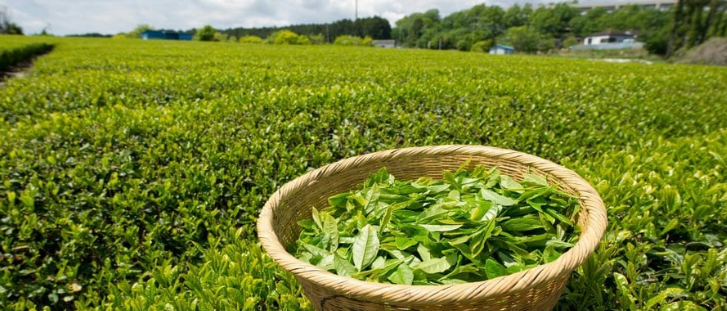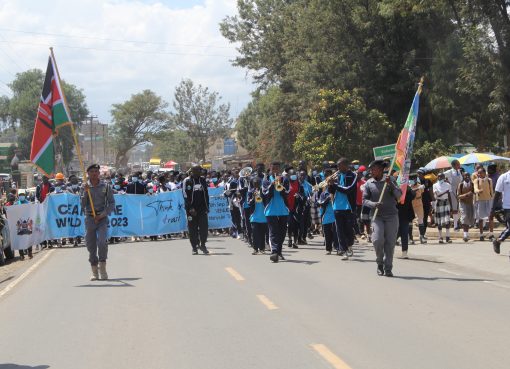The Kenyan Government has today lauded the removal of Non-Tariff Barriers to her tea export to Pakistan.
Trade Principal Secretary Amb. Johnson Weru confirmed that the Pakistan government this week waived attestation fee of Kenyan tea exports following an intensive negotiation between the two countries.
Speaking today during a media breakfast on the removal of attestation of tea export documents at a Nairobi hotel, the PS noted that the removal of the fees is a great relief for the local tea industry and the traders at large. “This NTB has greatly affected the tea Sector over the years.”
He explained that the volume of trade between Kenya and Pakistan has shown a steady growth of more than 100 per cent rising from Sh 31.1 billion (USD 283 million in 2008 to Sh 77.5 billion (USD 705 million) in 2020.
Kenya’s tea export to Pakistan, he added has been growing over the years and in 2011 Pakistan imported tea worth Sh 23.6 billion (USD 215.50) million from Kenya while last year Pakistan’s tea import from Kenya amounted to Sh 48 billion (USD 480.82 million), depicting a 123 per cent increase for the last 10 years.
“Boosting of the earnings of the tea growers, has seen increased competitiveness and accessibility of the Kenyan tea in and by the Pakistan and we want to appreciate the importance of Kenya- Pakistan Joint Trade Committee (JTC), a platform that has enabled both countries to engage in bilateral trade and investment related discussions,” the PS said.
He noted that with such statistics showing Pakistan as an important economic partner of Kenya and falls within the category of Kenya’s top ten major trading partners, there is therefore need to address the Sanitary and Phytosanitary issues affecting other products being traded between the two countries.
On technical standards, the PS said that both sides have agreed to strengthen collaboration in areas of standardization, conformity assessment, sharing of technical information and training of each other’s personnel in the field of standards.
“An MoU between Kenya Bureau of Standards (KEBS) and Pakistan Standard Quality and Control Authority (PSQCA) on matters of standard will be signed soon,” he said.
Amb. Weru further said that both governments are committed to closely working together towards the signing of the pending MOUs regarding the agricultural products including the Mangoes and Citrus fruits importation from Pakistan as well as the review of the proposed MOU to export avocado and nuts to Pakistan.
Other areas of cooperation that the two sides are closely and actively working on include; Cooperation in Trade and Investments, Health and Pharmaceuticals, Customs, Leather and Textile Industries, Vocational and Technical Training, and Tourism.
Amb. Weru has encouraged the tea sector players to take advantage of the opportunity and urge the Pakistanis to continue enjoying the top-notch quality of the Kenyan tea.
Saqlain Syedah, Pakistan High Commissioner to Kenya said that her government waiving attestation fee was prompted by the need to have a sound relationship with Kenya.
“Kenya is one of key trading partners. We export a lot of rice and other products to Kenya. We realize the need to have a level trading relationship where each player benefits,” said Ms. Syedah.
The removal of the attestation fee on Kenya tea, the high commissioner explained is part of her government strategy to eliminate non-tariff barriers to products like fertiliser and machinery being exported to the south east country.
“We look forward to having a positive trade engagement with Kenya. Equally, the waiver of the fee is expected to open doors for more products to the Pakistan market,” Syedar added.
Acting CEO of Tea Board Kenya, Peris Mudida said Kenya tea exports to Pakistan accounts for about 36 per cent of its total tea exports to the world while Kenya market share of Pakistan tea imports in about 85 per cent.
In a speech read on her behalf by Wekesa Khisa the Deputy Director at Tea Board, the CEO said the 0.25 per cent attestation process fee to high commission that has been eliminated had been a big challenge.
What this means is that tea farmers will earn more than Sh 100 million from the waiver annually, he explained .
“As an industry, we are happy and now looking forward to more collaboration with Pakistan high commission especially at enhancing competitiveness of Kenya tea such as joint ventures in promoting value added tea exports into Pakistan and its regional market , co-branding and co-labelling as well as participation in trade missions and promotional activities,” Mudida said
East Africa Tea Traders Association (EATTA) Chairman Charles Kibandi said that the waiver of the attestation fee will go a long way in improving efficiencies within the value chain.
He noted that the close relationship that the EATTA has with the tea fraternity in Pakistan goes way back to the late 1960s when Pakistan purchases of Kenyan tea began to grow exponentially
“To date, Pakistan is the leading export market for Kenyan tea and last year Pakistan bought tea worth USD 500 million at an average price of USD 2.33 per kilo,” Kibandi said.
In 1994, Pakistan became the lead importer of Kenyan tea surpassing UK which had predominantly held the position, since then it has retained its role position with approximately 76 per cent of tea from Kenya consumed by Pakistanis.
By Wangari Ndirangu




